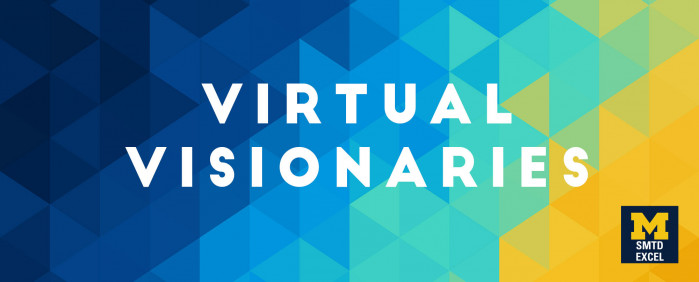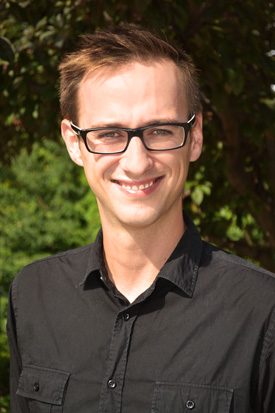By David Raymond
How do musicians and other creative and performing artists – members of a tight-knit community – function in their careers when that community is fractured? What are the performing possibilities when public performances are canceled?
These scenarios became reality overnight with the onset of the COVID-19 pandemic. The resulting closure of schools and colleges and postponing of live music and theater events indicated an unforeseen future and added more day-to-day challenges to already challenging jobs. Already focused on career services, professional development and developing entrepreneurial skills in students, programs like Eastman’s Institute for Music Leadership (IML) and the EXCEL Lab at University of Michigan’s School of Music, Theatre & Dance have sought ways to meet the needs of their students and alumni.
Jonathan Kuuskoski, chair of the Department of Entrepreneurship and Leadership and director of the EXCEL Lab, saw that an online resource could provide valuable information for its survival and well-being. The online series Virtual Visionaries was the result, a response to what Jonathan terms “a confluence of crises.” A coalition of eight other entrepreneurship-oriented departments and institutes at collegiate institutions — including Eastman’s Institute for Music Leadership – agreed to co-sponsor the series.
“After the loss of the entire end of the semester and the sense of isolation that followed, we wanted to create a community conversation with our peers and the public,” Jonathan explains. “We knew that musicians would need to stay connected with information of value to them – and that the situation would be exacerbated over the summer.”
Jonathan Kuuskoski, Director of Entrepreneurship and Leadership, University of Michigan
Starting the week of May 25 and running for ten weeks through early August, Virtual Visionaries brought together professionals across the performing arts – a dynamic group of performers, teachers, administrators, community activists, and scholars — for weekly virtual discussions on Zoom.
Each event was shortly followed by a summary post with enhanced information and commentary on Eastman’s Paul R. Judy Center for Innovation and Research website, authored by Eastman and University of Michigan alumnus Eric LaPrade, Managing Editor of the Paul R. Judy Center website and faculty member at the College of New Jersey.
Subsequent discussions have featured musicians sustaining active freelance and ensemble careers in a rapidly changing field; prominent arts executives sharing their perspective on what the future may hold for artists and local non-profits; and members of leading service organizations who are imagining new resources and programming to sustain the arts in their communities, as well as providing ways to interface in beneficial and healing ways.
Virtual Visionaries was so successful that Eastman’s Institute for Music Leadership team and the EXCEL team at Michigan have been discussing what the next round of presentations will look like. In particular, Kuuskoski has been urged by Eastman IML Director Jim Doser and IML Graduate Program Director Rachel Roberts to “think beyond the summer,” as he puts it. That’s advice Jonathan is willing to take. “We’re delighted to work with Eastman,” he says; “We’ve always looked up to the Institute for Music Leadership.”
According to Doser, “We saw an opportunity to expand and leverage this collaboration to amplify a concurrent national conversation in the arts around structural racism and the quest for racial and gender equity in music.”
Plans in discussion for the future include offering an “actionable” two-day virtual symposium that provides participants with an opportunity to study those musicians and arts organizations who have developed successful and impactful programs, initiatives, and policies in the fight for gender and racial justice and equity in the arts in the wake of the COVID-19 pandemic.
While Virtual Visionaries was not a course, Jonathan describes the summer program and plans for the future as “a curricular experience in a way – presenting sequential information and inspiration and solace to the community.” It has also proven to him that “Arts leaders are very supportive and have a great willingness to collaborate.”
The Virtual Visionaries series was made possible by the transformative support of the Meta Weiser EXCEL Fund, a generous anonymous donation, and through partnership with several important collaborators at Michigan and the Paul R. Judy Center for Innovation and Research at Eastman. We are thrilled to have assembled a coalition of peer institutions as co-sponsors of this series, whose students, alumni, and stakeholders will all be encouraged to participate.
The series co-sponsors include:
Eastman School of Music’s Institute for Music Leadership
Manhattan School of Music’s Center for Music Entrepreneurship
Michigan State University’s Running Start Program
New England Conservatory’s Entrepreneurial Musicianship Department
Roosevelt University’s Center for Arts Leadership, Chicago College of Performing Arts
University of Colorado-Boulder’s Entrepreneurship Center for Music
University of North Texas’ Music Business and Entrepreneurship Program
Wayne State University’s Music Business Program

